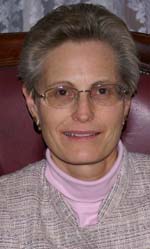As an option for those who choose not to sing in a polyphony choir at this year’s Sacred Music Colloquium, Dr. Susan Treacy, professor of Music at Ave Maria University, will be offering an afternoon lecture series commemorating the 110th anniversary of the 1903 motu proprio on sacred music of Pope Saint Pius X. Sounds too good to miss!
Lecture 1: Sacred Music in the Nineteenth Century
The first lecture will set the stage with an overview of Catholic liturgical music in the nineteenth century–the realities of sacred music in parish life and various efforts at reform–both in Europe and America.
Lecture 2: Music in the Life of Giuseppe Sarto
Born into a very poor family, the future Pope Saint Pius X became enamored of sacred music during his boyhood. In one sense his whole life was a preparation for the motu proprio. As a young priest, pastor, canon, and seminary rector, Father Sarto gave an important place to the teaching of Gregorian chant.
Lecture 3: Towards the motu proprio
In 1884 Giuseppe Sarto was made Bishop of Mantua; now he was able to promote Gregorian chant and sacred polyphony on a wider scale. As a bishop and then a cardinal, Sarto issued documents that would form the basis of his eventual papal motu proprio.
Lecture 4: Reception and Implementation of the motu proprio
How was the motu proprio received by the Catholic world? Did all Catholics obey the Holy Father’s decrees? This lecture examines some of the initiatives to implement the motu proprio, including efforts to revive congregational chanting.
Lecture 5: The motu proprio: Past, Present, and Future
The motu proprio of Pope Saint Pius X has been the starting point of subsequent documents on sacred music, including those of Vatican Council II. Was Pius’s vision for sacred music distorted after Vatican II? What has been done to restore this vision, and what can be done at the parish level?
You can still register for the Sacred Music Colloquium.


